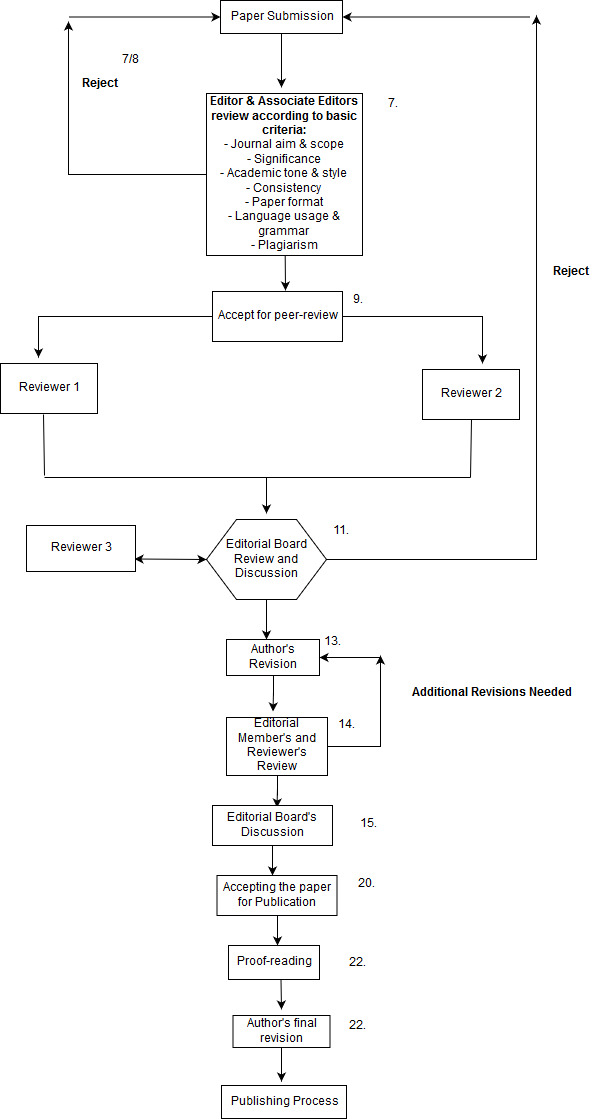Good News! Our Second Issue (Volume 3; Issue 1) has been published.
Dergimizin 2025 yılı 1. sayısı (Cilt 3; Sayı 1) yayımlandı.
Duties of Referees
Reviewers are expected to accept or decline the review invitation sent by the Editor or one of JELEDU's Field Editors within seven days. After accepting a review invitation, reviewers are expected to complete the review process and upload the relevant files to JELEDU's journal management system within 15 days.
If they feel that they cannot review the article fairly due to a conflict of interest, they should notify the editor of their inability to review the article in question.
Reporting of Reviews
The review reports are expected to focus on the following issues;
Conflict of interest
Since the editor may not be aware of all the above-mentioned situations, reviewers are expected to inform the editor if there is a problem that prevents them from making a fair evaluation.
Publication Policy and Other Ethical Issues
Although the Editor tries hard to point out ethical issues and other problems with a manuscript in process that violate JELEDU's editorial policy, he or she may not be aware of everything. Therefore, it is important for reviewers to inform the Editor if they encounter any problems.
Authors are also expected to state that they comply with the rules and behaviors of research and publication ethics.
When preparing an article based on their thesis or dissertation, authors are expected to report the whole thesis or dissertation without slicing it up, or to report the research and the data it contains in part.
Authors should also indicate the proportion of each investigator's contribution, as well as acknowledgment to the funders and a conflict of interest statement at the end of the manuscript.
All authors are kindly requested to fill in and sign the "Copy Rights Agreement Transfer Form" after the manuscript is accepted for publication.
Providing Feedback for Reviewers
The final version of manuscripts accepted for publication is sent only to reviewers who have previously indicated that they would like to see the manuscript again.
A reviewer may find that the manuscript does not reflect the criticisms and perspectives provided during the review process. It is possible for other reviewers to offer different perspectives and for the editor to take them into account.
The editor may decide to follow one of the following paths, taking into account the review reports:
The referees have the right to indicate in their report whether the article deserves to be accepted for publication or rejected. It is the Editor who will decide whether or not to publish the article, taking into account the strength and justification of the arguments provided by the referees and the authors.

Dergimizin 2025 yılı 1. sayısı (Cilt 3; Sayı 1) yayımlandı.
Dergimizin 2024 yılı 2. sayısı (Cilt 2; Sayı 2) yayımlandı.

The journal is licensed under a Attribution 4.0 International (CC BY 4.0).
Journal Hosting, Support, and Customization by | OJSDergi.com
